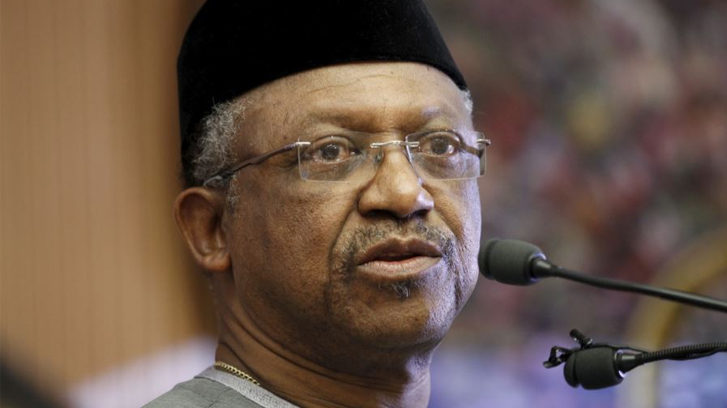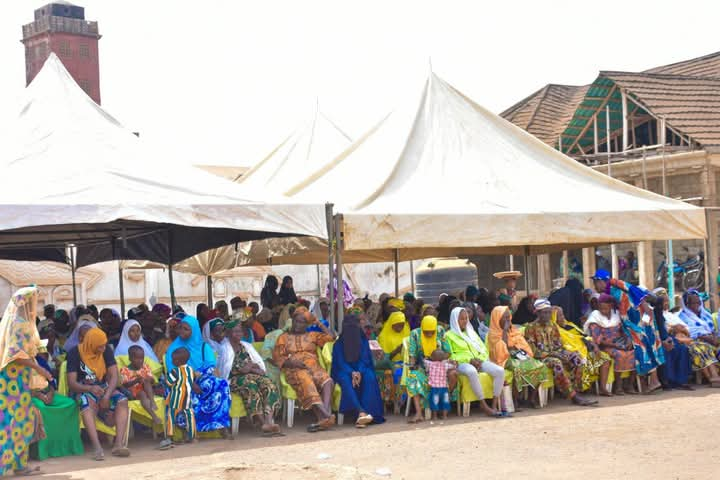News
Yellow fever kills 76 in Bauchi, Delta, Enugu

At least 76 persons have been killed by yellow fever in Bauchi, Delta and Enugu states.
The Nigeria Centre for Disease Control gave the figure in its Yellow Fever Situation Report on the clusters of outbreaks in Bauchi, Delta and Enugu states issued on Friday night.
The report read, “On November 1, 2 and 8, clusters of cases and deaths were reported to the NCDC by the State Epidemiologists of Delta, Enugu and Bauchi states, respectively.
“Seventy-four suspected cases with 35 deaths were reported from Delta State; 70 suspected cases with 33 deaths from Enugu State; and 78 suspected cases with eight deaths from Bauchi State.
“From the preliminary investigations, three samples from Delta (November 6), one sample from Enugu (November 6) and eight samples from Bauchi (November 8) were confirmed as yellow fever with PCR at the NCDC National Reference Laboratory, Gaduwa.
“Between November 1 and 11, 2020, a total of 222 suspected cases, 19 confirmed cases and 76 deaths have been reported from these three states.
“Most of the cases are males, with ages ranging from one to 55 years and presented with fever, headache, fatigue, jaundice, abdominal pain, vomiting with or without blood, epistaxis, blood in stools/urine, convulsion and unconsciousness.
“On November 7, the National Yellow Fever Emergency Operations Centre was activated to coordinate response activities across all affected states.
“The State Epidemiology Team in the affected states is leading the response with support from NCDC, National Primary Health Care Development Agency and World Health Organisation. The National RRTs from NCDC have been deployed to support response activities in Delta and Enugu states.
“As of epi-week 41 this year, Nigeria has reported a total of eight confirmed cases of yellow fever from seven LGAs across four states with no death among confirmed cases. The NCDC has been coordinating.”
News
Tinubu swears in Disu as substantive IGP, chief inaugurates up state police committee

Tinubu swears in Disu as substantive IGP, chief inaugurates up state police committee
President Bola Tinubu on Wednesday swore in Olatunji Disu as the substantive Inspector-General of Police at the Council Chambers of the State House, Abuja, as the new police chief immediately inaugurated a committee to drive the implementation of state policing.
Disu took the oath of office at 2:53pm after his citation was read by the State House Director of Information and Public Relations, Mr Abiodun Oladunjoye.
The brief ceremony, witnessed by Vice President Kashim Shettima, members of the Federal Executive Council and other top government officials, preceded the FEC meeting, which commenced at 3:01pm.
Among dignitaries present were the Secretary to the Government of the Federation, George Akume; National Security Adviser, Nuhu Ribadu; Chief of Staff to the President, Femi Gbajabiamila; Minister of Police Affairs, Ibrahim Gaidam; FCT Minister, Nyesom Wike; and Head of Service, Mrs Esther Walson-Jack.
The President also swore in newly appointed commissioners of the Revenue Mobilisation Allocation and Fiscal Commission and the Federal Civil Service Commission.
Disu’s confirmation followed his unanimous endorsement by the Nigeria Police Council on Monday, barely a week after Tinubu appointed him acting IGP in the wake of the resignation of his predecessor, Kayode Egbetokun, on February 23, 2026.
At Monday’s Police Council meeting, Lagos State Governor, Babajide Sanwo-Olu, reportedly commended Disu’s track record, particularly his tenure as Commander of the Rapid Response Squad in Lagos between 2015 and 2021.
Nasarawa State Governor, Abdullahi Sule, also described the appointment as merit-based, while Enugu State Governor, Peter Mbah, seconded the motion endorsing him.
Disu, 59, joined the Nigeria Police Force as a Cadet Assistant Superintendent of Police on May 18, 1992. Before his elevation, he served as Assistant Inspector-General of Police in charge of the Special Protection Unit and the Force Criminal Investigation Department Annex in Lagos. He previously held key roles in Lagos and Rivers states.
Hours after his inauguration, the new IGP held his first formal engagement with senior officers, during which he announced the constitution of an eight-member committee to oversee the implementation of state policing.
Professor Olu Ogunsakin was named chairman of the committee.
Addressing the force hierarchy, Disu said leadership was “not about position but responsibility,” stressing that professionalism, discipline and accountability must guide policing nationwide.
He underscored the need for restraint in the exercise of authority and respect for human rights, insisting that all Nigerians must be treated with dignity and fairness irrespective of status.
The IGP also pledged to strengthen internal oversight mechanisms, directing that the Public Complaint Unit and the X-Squad be empowered to operate independently.
On decentralisation, Disu said state policing would enable different tiers of government to play more active roles in addressing security challenges across the country.
News
Tinubu names ‘Tax man’ Taiwo Oyedele minister of state for finance

Tinubu names ‘Tax man’ minister of state for finance
President Bola Tinubu has nominated Taiwo Oyedele as the minister of state for finance, replacing Doris Anite-Uzoka.
Mrs Anite-Uzoka will now move to the Ministry of Budget and National Planning, as the Minister of State, her third portfolio in the administration.
President Tinubu today conveyed the nomination of Mr Oyedele to the Senate for confirmation in a letter to the Senate President, Godswill Akpabio.
Until President Tinubu nominated him as a minister, Mr Oyedele from Ikaram, Akoko, Ondo State, was the chairman of the Presidential Committee on Fiscal Policy and Tax Reforms, which overhauled Nigeria’s tax system.
Mr Oyedele, 50, is an economist, accountant and public policy expert.
He attended Yaba College of Technology, where he obtained a Higher National Diploma (HND) in accountancy and finance. He attended Oxford Brookes University and earned a BSc in applied accounting.
He also completed executive education programmes at the London School of Economics, Yale University, the Gordon Institute of Business Science, and the Harvard Kennedy School.
Mr Oyedele spent 22 years of his working career at PwC, joining in 2001 and rising to become the Fiscal Policy Partner and Africa Tax Leader.
Mr Oyedele is also a professor at Babcock University in Ogun State and a visiting scholar at the Lagos Business School.
Bayo Onanuga,
Special Adviser to the President,
(Information and Strategy)
March 3, 2026
News
Relief Radiant Hearts Foundation Launched in Iwo, Promises Hope for the Vulnerable

Relief Radiant Hearts Foundation Launched in Iwo, Promises Hope for the Vulnerable
March 3, 2026
The ancient town of Iwo, Osun State, witnessed a significant humanitarian milestone on Sunday, March 1, 2026, as the Relief Radiant Hearts Foundation (RRHF) was officially launched at the Palace of the Oluwo of Iwo.
 The colourful ceremony, held at the revered Oluwo Palace, attracted dignitaries, traditional rulers, government officials, medical professionals, education stakeholders and community leaders from within and beyond Iwoland.
The colourful ceremony, held at the revered Oluwo Palace, attracted dignitaries, traditional rulers, government officials, medical professionals, education stakeholders and community leaders from within and beyond Iwoland.
Royal Endorsement and Vision
Chairman of the Board of Trustees of the Foundation, Alhaji Liad Tella, expressed deep appreciation to the Oluwo of Iwo, Oba Abdul Rasheed Adewale Akanbi, for his royal blessings, fatherly guidance and unwavering support which paved the way for the successful unveiling of the foundation.
Alhaji Tella stated that RRHF is built on the core values of integrity, transparency, accountability and sincerity of purpose. He commended the Coordinator of the Foundation, Asiwaju Anifowose Rahman, describing his passion as a driving force behind the initiative’s mission to reduce hardship, empower the less privileged through education and restore dignity to vulnerable members of society.
 According to him, what began as a seed of compassion has blossomed into a tree of hope, stressing that divinely inspired visions often attract support from unexpected quarters.
According to him, what began as a seed of compassion has blossomed into a tree of hope, stressing that divinely inspired visions often attract support from unexpected quarters.
In his royal remarks, Oba Akanbi lauded the initiative, noting that it would help reduce poverty, inspire hope and strengthen communal bonds within Iwo and its environs.
Chieftaincy Honour for UCH CMD
A major highlight of the event was the conferment of the prestigious chieftaincy title of Baasegun Ariwajoye of Iwoland on the Chief Medical Director of the University College Hospital (UCH), Professor Jesse Abiodun Otegbayo.
Professor Otegbayo described the launch as “the unveiling of hope and the institutionalization of compassion,” emphasizing the urgent need for structured and sustainable humanitarian interventions in the face of widening socio-economic gaps.
He praised the visionaries behind the foundation for transforming compassion into an enduring institution capable of delivering measurable impact.
The UCH management team present at the ceremony included Mrs. I.O. Olaleye, Acting Director of Administration; Mrs. Fawole, Head of General Administration; Mr. Akintola, Head of Transport; and Mrs. Obafunmilayo Adetuyibi, Head of Public Relations, among other staff members.
Academic Excellence Competition
Demonstrating its commitment to educational empowerment, the Foundation organized an Academic Excellence Competition as part of the launch activities.
Olaniyan Abdulsomod Olawale of Muslim Comprehensive High School, Isokan, emerged as the Overall Best Student and received a gold medal alongside a full scholarship to any public university of his choice in Nigeria.
Zakariyah Hameedah of Iwo Grammar School secured second place and was awarded full sponsorship for WAEC, NECO and JAMB registration, while Taofeek Ajimoh of St. Anthony Catholic Grammar School, Iwo, finished third and received full sponsorship for WAEC and NECO registration.
Two other outstanding students — Adigun Oluwatoyin Esther of Baptist High School, Iwo, and Atilola Ameeroh Demilade of Anwar-ul-Islam Grammar School, Iwo — were also recognized and rewarded with gifts in appreciation of their commendable performances.
In a further show of community support, the Host of the Day, Engr. Alamu Akeem Adelani, pledged to sponsor the WAEC and NECO fees of the two outstanding students on behalf of Omoba Dotun Babayemi (ODB).
Community Outreach and Collective Responsibility
Another key highlight of the ceremony was the distribution of food items to members of the community, reflecting the foundation’s core mandate of compassion, relief and service to humanity.
Special appreciation was extended to the Executive Chairman of Iwo Local Government, members of the Executive Council, EAS officials, honourable councilors, the CEO of Coastline, and prominent sons and daughters of Iwo both at home and in the diaspora who contributed to the success of the event.
Speakers at the ceremony described the Relief Radiant Hearts Foundation as more than an organization, but a symbol of unity, compassion and collective responsibility.
As the event concluded with prayers of gratitude to Almighty Allah, stakeholders expressed optimism that the foundation would bridge social gaps, uplift vulnerable groups and position Iwo as a beacon of structured humanitarian service in Nigeria.
Relief Radiant Hearts Foundation Launched in Iwo, Promises Hope for the Vulnerable
-

 International2 days ago
International2 days agoIran Retaliates: Gulf States Allied With US Hit by Missiles, Drones
-

 International2 days ago
International2 days agoSaudi Arabia Denies Lobbying US to Strike Iran as Gulf States Respond to Escalation
-

 International2 days ago
International2 days agoSeveral U.S. Warplanes Crash in Kuwait Amid Ongoing Iranian Strikes
-

 metro2 days ago
metro2 days agoDaddy Freeze Warns Couples Over 40: ‘Avoid Moving Abroad, Especially US, UK’
-

 International2 days ago
International2 days agoIsraeli Airstrikes Kill 31 in Lebanon as Hezbollah Loses Senior Figures
-

 Politics2 days ago
Politics2 days agoWike Blasts Kingibe Over FCT Council Election Remarks
-

 metro3 days ago
metro3 days agoLagos Announces Traffic Diversions for Ogunnusi Road Reconstruction in Ikeja
-

 Health2 days ago
Health2 days agoNigeria to Receive Breakthrough HIV Prevention Drug This Month – NACA
















You must be logged in to post a comment Login